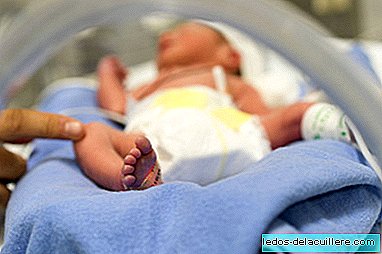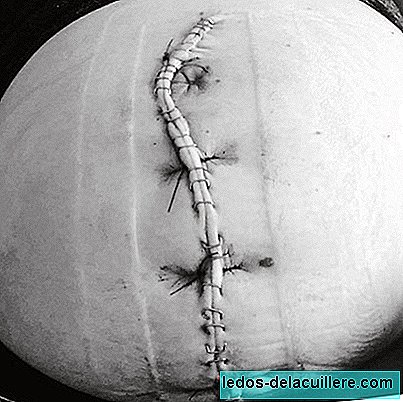
The theory says that a pregnancy lasts forty weeks, but the practice is very relative. In Spain every year 28,000 babies are born prematurely, before the 37th week of gestation, which is one of every 13 births, one of the highest rates in the EU, according to data from the Association of Parents of Premature Children (APREM ). Also, if we focus on the "great premature babies", those born between the 28th and 32nd week, as of 2015, we would be talking about 500 babies a year.
Scientists at the Vrije Universiteit in Amsterdam (The Netherlands) have observed that children who were born too prematurely or who were too low usually get lower test scores to measure the IQ, compared to those babies born at finished. That is Every day they spend inside the womb is important for their cognitive development.
Possible complications of premature babies
According to the Spanish Society of Neonatology (SENeo), premature babies are at a higher risk of developing health problems, specifically the 75% of hospital admissions for newborns.
Thanks to scientific advances and medical care, survival rates are increasingly high, but many babies born before term have complications arising from prematurity such as acute respiratory infections (especially bronchiolitis), chronic diseases or neurodevelopmental deficits. Specifically, the very premature have a higher risk of have a delay in neurological development than those born at term due to their immaturity.
Relationship of the intellectual quotient with prematurity
The researchers analyzed 5,155 children who were born at term, from the 37th week of gestation and 7,752 who did so very prematurely, before the 32nd week of gestation, or that when they were born they weighed less than 1.5 kilos.
They then analyzed the IQ scores obtained between 5 and 20 years of age and concluded that, in general, premature children had a mean of 13 points less In the tests.
The study revealed that every week less than the baby spent inside the mother's womb his intellectual quotient was reduced by 1.26 points. And considering the lowest scores, it could be estimated that approximately 16% of newborns who were in these circumstances could have a serious intellectual disability.
Despite this, the study authors state that it is not a controlled experiment specifically designed to test whether premature birth could cause cognitive deficits directly or not. It is not conclusive because they do not have data such as demographic factors.
Finally, they indicate that it is important that parents of premature children always know the risks they face and that it is convenient to promote their early attention to enhance their cognitive abilities through hugs, caresses or the familiar kangaroo method.












